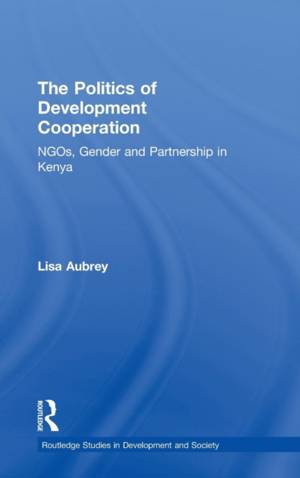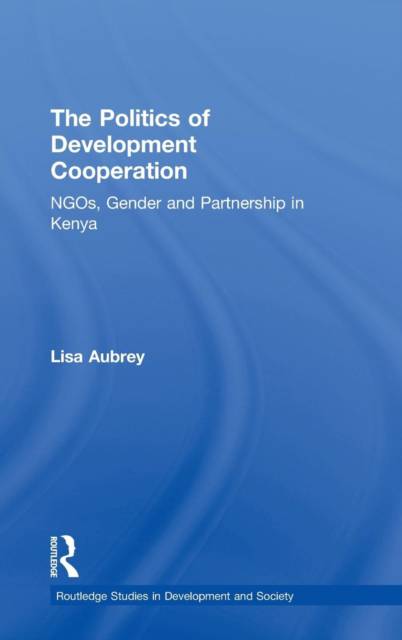
Door een staking bij bpost kan je online bestelling op dit moment iets langer onderweg zijn dan voorzien. Dringend iets nodig? Onze winkels ontvangen jou met open armen!
- Afhalen na 1 uur in een winkel met voorraad
- Gratis thuislevering in België vanaf € 30
- Ruim aanbod met 7 miljoen producten
Door een staking bij bpost kan je online bestelling op dit moment iets langer onderweg zijn dan voorzien. Dringend iets nodig? Onze winkels ontvangen jou met open armen!
- Afhalen na 1 uur in een winkel met voorraad
- Gratis thuislevering in België vanaf € 30
- Ruim aanbod met 7 miljoen producten
Zoeken
€ 351,45
+ 702 punten
Omschrijving
First Published in 2004. The Politics of Development Cooperation interrogates the politics of interorganizational development cooperation, examining issues of power, autonomy, and dependence. Focusing on Kenya and in particular on Maendeleo Ya Wanawake (MYWO), the largest national women's organization, and its partners in its relational environment, this book probes the relationships between foreign donors, grassroots development organizations and governments. Aubrey examines whether it is possible for the North and the developing world to be engaged in genuine development partnerships, the influence resource contributions, financial and technical, have on agenda formulation and compromises, and whether organizations such as MYWO are truly NGOs, as they claim to be, or whether they remain an extension of the state exploited by patriarchal party politics. Gender is central to the analysis of this book, with issues reflecting and reintroducing the politics of unequal resources in development cooperative partnerships. Differences in status among women are also systematically examined because the politics of development affect elite and grassroots women differently.
Specificaties
Betrokkenen
- Auteur(s):
- Uitgeverij:
Inhoud
- Aantal bladzijden:
- 256
- Taal:
- Engels
- Reeks:
- Reeksnummer:
- nr. 4
Eigenschappen
- Productcode (EAN):
- 9780415151856
- Verschijningsdatum:
- 28/08/1997
- Uitvoering:
- Hardcover
- Formaat:
- Genaaid
- Afmetingen:
- 157 mm x 246 mm
- Gewicht:
- 566 g

Alleen bij Standaard Boekhandel
+ 702 punten op je klantenkaart van Standaard Boekhandel
Beoordelingen
We publiceren alleen reviews die voldoen aan de voorwaarden voor reviews. Bekijk onze voorwaarden voor reviews.











